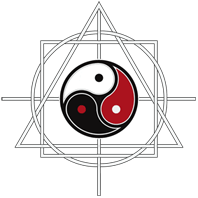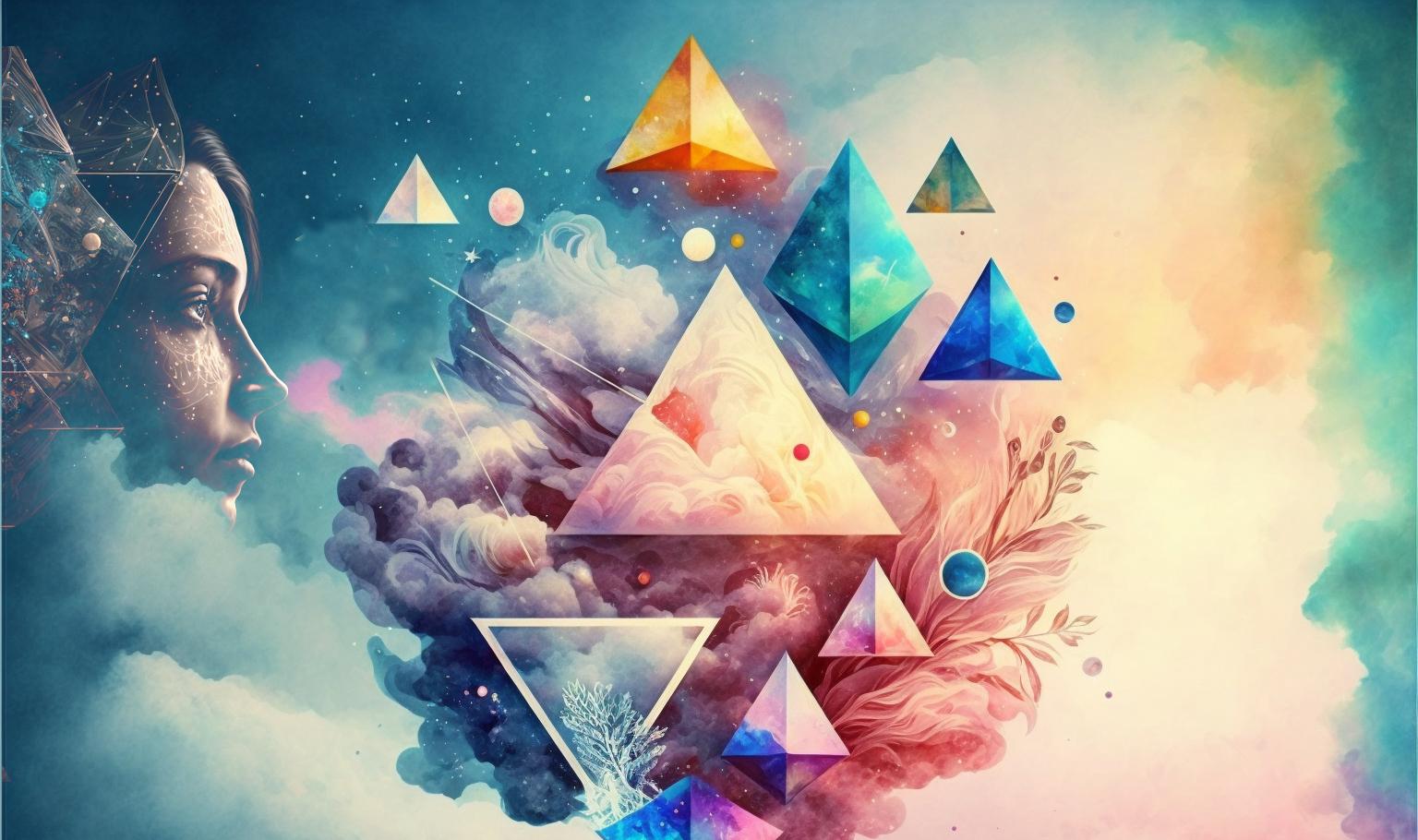
The First Personality Reading Based On
The Sacred Geometry Of Your Name Symbols.

On the pediment of the Temple of Delphi it was inscribed, "Know thyself," but few thinkers have understood this precept. It is believed that to know yourself means to know your character, your weaknesses, your qualities. No, it is something more. If it were only psychology, it would never have been written on a temple!
Real knowledge is fusion. Saying: "Know thyself", the Initiates meant that man is not who he thinks he is and that he must therefore learn to know himself. To know oneself is to identify oneself, to merge with oneself, that Higher Self which is above in the region of the Spirit.
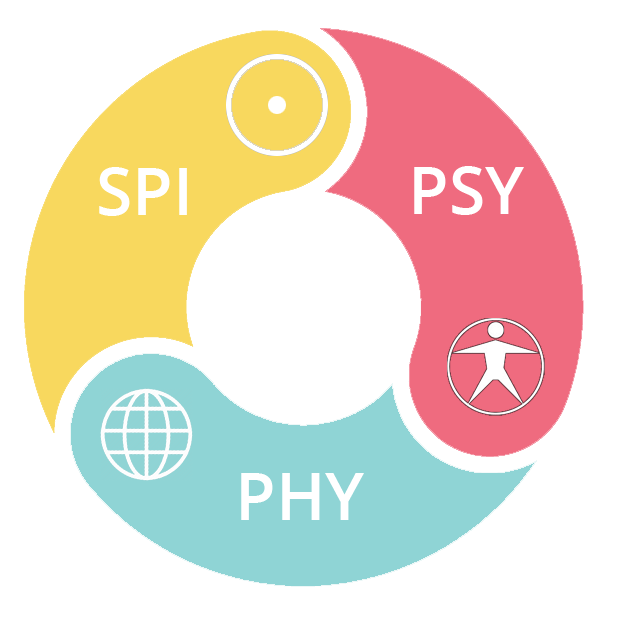
Our evolution must take place in the three worlds, physical, psychical and spiritual. This is the meaning of the words of Hermes Trismegistus (i.e. "three times very great") at the end of the Emerald Table: "This is why I have been called Trismegistus, having the three parts of universal philosophy. »
Hermes Trismegistus possessed "the science of the three worlds", hence his name "Trismegistus": three times very large, and these three worlds have been interpreted by all commentators as the divine or spiritual world, the astral or psychical world and the physical world.
One can only understand the structure of the human being if one knows the structure of the universe, and one can only understand the structure of the universe if one knows the structure of the human being. By his intelligence, sensitivity and will, man manifests himself as: mind, soul and physical body.
It is the proof that there exists in the three worlds, spiritual, psychical and physical. In the course of their meditations, the Initiates have always noted this ternary structure and they have found there an essential key.
Everything is built according to this pattern, everything imitates and reflects this reality of the three worlds: the spiritual world, the psychical world and the physical world, or the world of principles, the world of laws and the world of facts.
|
Serving the "Self" |
Serving the "Other" |
Serving an "Idea" |
|
|
|
|
|
|
|
|
|
|
|
|
|
Man, as a "microcosm", must necessarily participate in the "three worlds" and have within him elements that correspond to them respectively; and, in fact, the same general ternary division is also applicable to him: he belongs by the spirit (Mind) to the spiritual world, by the soul to that of psychical world, and by the body to the physical world.
From this observation of the ternary structure of the Universe and of Man, Plato's Greece conceived a ternary structure, a direct reflection of the structure of the Universe: Soma or physical part, Psyche or psychological part linked to the Soul (Psyche: Soul) and Noos, the spiritual part in Man.
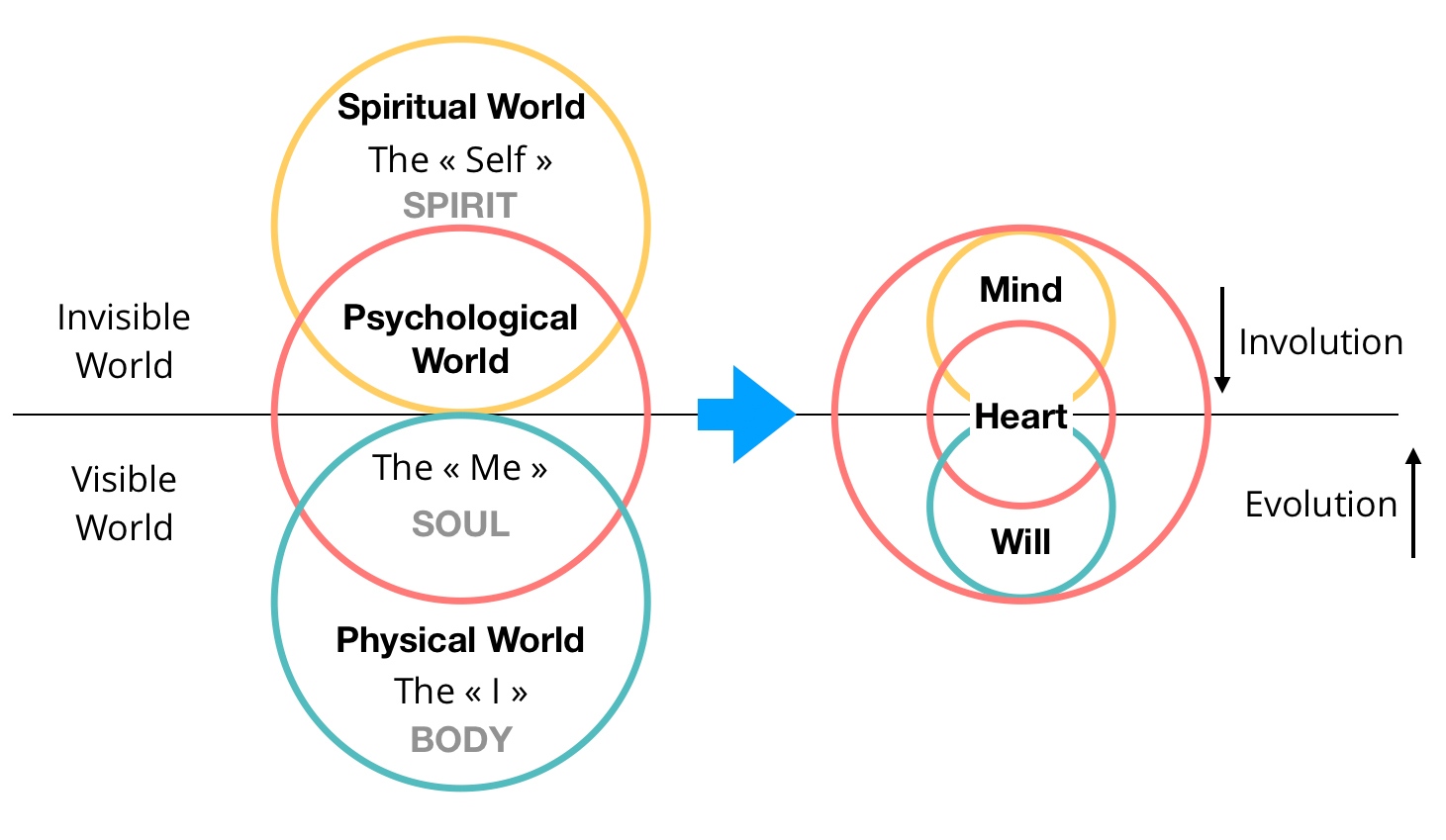
All the Greek philosophers (Platonism, Aristotelianism) develop the idea of the microcosm and the macrocosm. Nature (Physical Wold) is considered as a living organism, traversed by invisible but active forces.
As we can see in the figure below, Man's spirit (Mindset) is part of the Spiritual World just as his Body is totally encompassed in the Physical World (i.e. all its atomic components are the same as those found in nature).
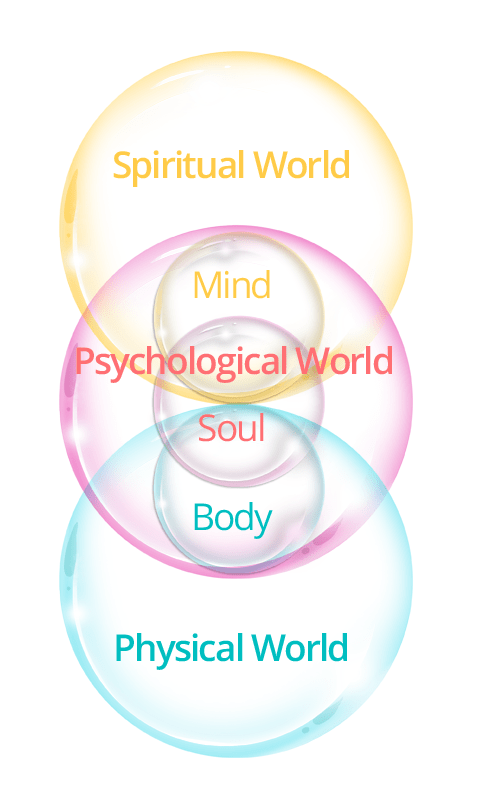
The Soul is at the crossroads and ensures the transition between the Spiritual World and the Physical World.
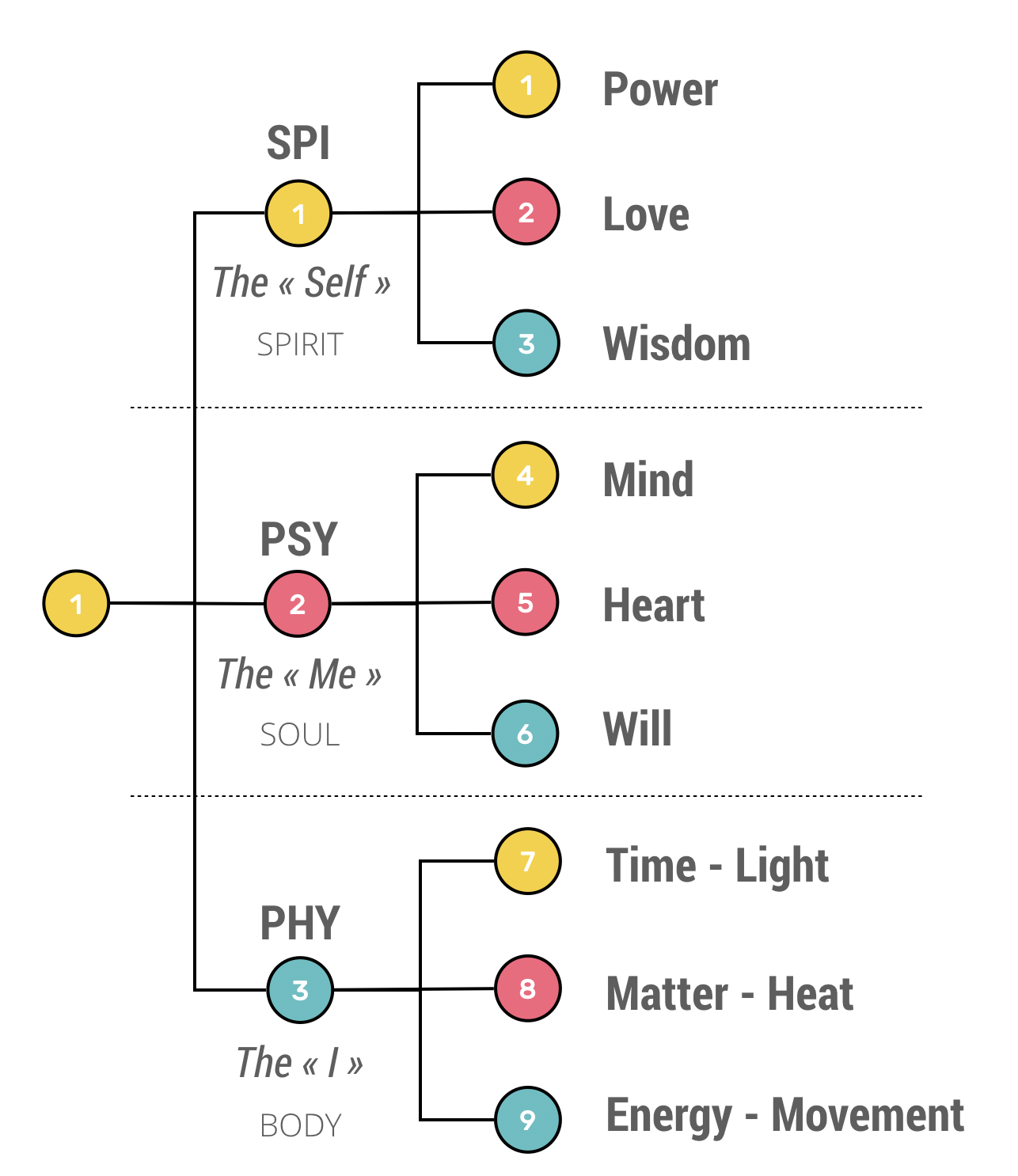
We have adapted the vocabulary of the Three Worlds to the field of psychology.
Set of attitudes adopted by the subject towards others. The ability to act, the answers we give to our environment. It is also the ability to interpret the expectations of the other, to put oneself in the other's place and to anticipate his/her intention. The "I" is the subjective aspect of the self. It is associated in particular with life in the community, the professional world, and the wide circle.
The "I" is connected to the real and physical world, to the lower self. The verb of the"I" is "to exist": I exist. To exist is to appear socially or professionally, to cover oneself with a mask, persona in Latin.
The image that the subject perceives of himself in others. The self is the objective aspect of the self. One puts oneself in the place of the other and perceives oneself as an object. The other is a mirror and I see myself in this mirror. The "Me" corresponds to the image of oneself that one makes thanks to the image that the others return to us.
The "Me" is associated with the conscious personality that thinks, feels and acts. It represents the transmission belt between the aspirations of the "Self" (upper level) and the realizations of the "I". It is the position of the "Me", as a conscious function, that must decide the adaptation to reality. For that it has several means of expression: the glance, the word and the gestures. The verb of the "Me" is "to become": I become.
The ideal vision of the "Me", the unconscious force that carries us. It represents the highest version we have of ourselves, our higher Self.
The "Self" is the archetype that founds me in the World of Ideas and that, immersed in the Sensitive World, engenders the person I am. For our deep identity is none other than our origin. The verb of the Self is "To be": I am
But this trinity: physical body, astral body, mental body, constitutes our imperfect human nature.
These same faculties of thought, feeling and action are found in us on a higher level, and there their vehicles are the causal, Buddhist/Christic and athmic bodies that form our divine Self.
The physical body that represents force, will, power in the material plane is related to the atmic body that represents divine force, power and will.
The astral body, which represents selfish and personal feelings and desires, is related to the Buddhist body, which represents divine love.
The mental body, which represents ordinary and self-interested thoughts, is related to the Causal body, which represents divine wisdom.
The human being is thus made up of three bodies (or three souls) that make up his lower self and which must one day unite with the three bodies (or three souls) that make up his higher self.
Then the heart will become the conductor of the soul and divine love will flow through it; the intellect will become the receptacle of divine wisdom, and the spirit will manifest itself through it; and the body will benefit from Strength and Power.
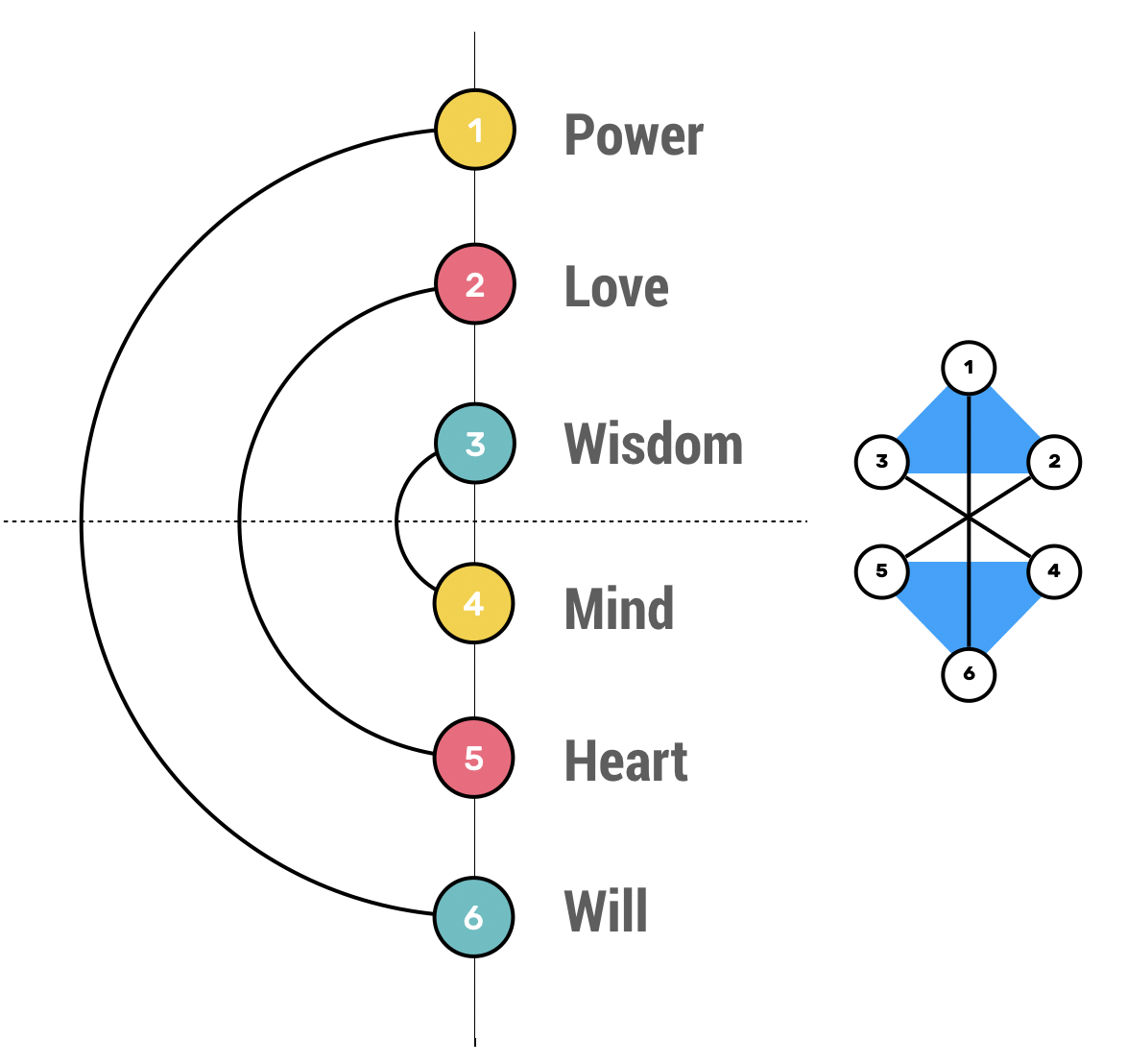
For the physical body or the earth to be transformed, it is first necessary to establish communications with the world of the spirit, with Heaven ... we can also say with the world of Ideas of which Plato spoke, that is to say the intelligible world, the world of archetypes which is none other for me than the divine world.
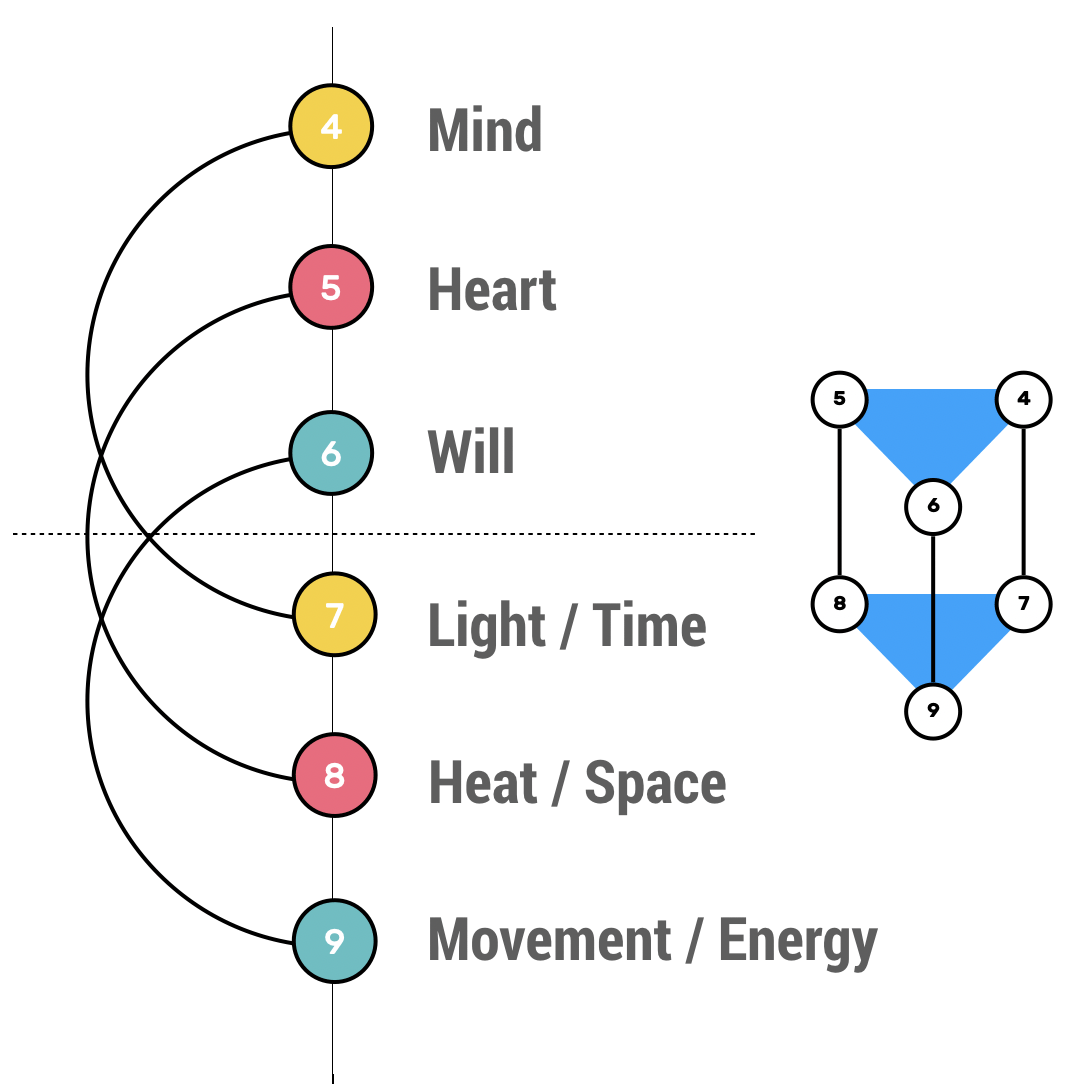
If intellect 4 is not purified by the light 7 of spirit 3, it is prey to pride.
If the heart 5 is not purified by the warmth 8 of the soul 2, it falls prey to the disorders of the passions.
If the Body 6 (Will) does not benefit from sufficient Energy 9 (movement), it cannot express its intention, its strength 1.
As soon as communication is established, energies flow and can produce results in matter. At that moment, yes, thought is powerful, it is magical, it manifests itself in fullness.
The intellect (4) needs light (7) to acquire Wisdom (3), the heart (5) needs warmth (8) to feel Love (2), and our will (6) needs power, energy (9), to manifest its Truth and intention (1).
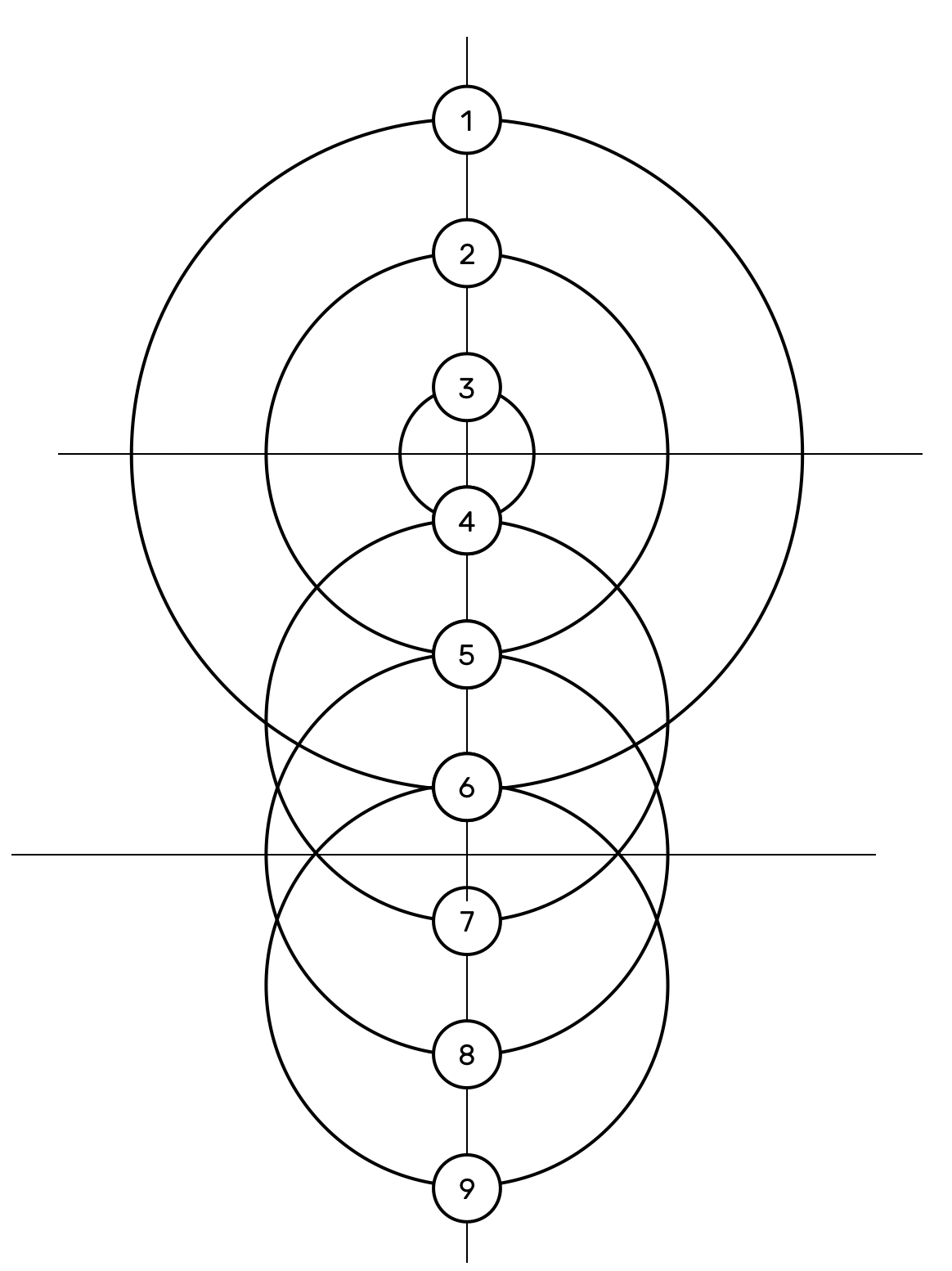
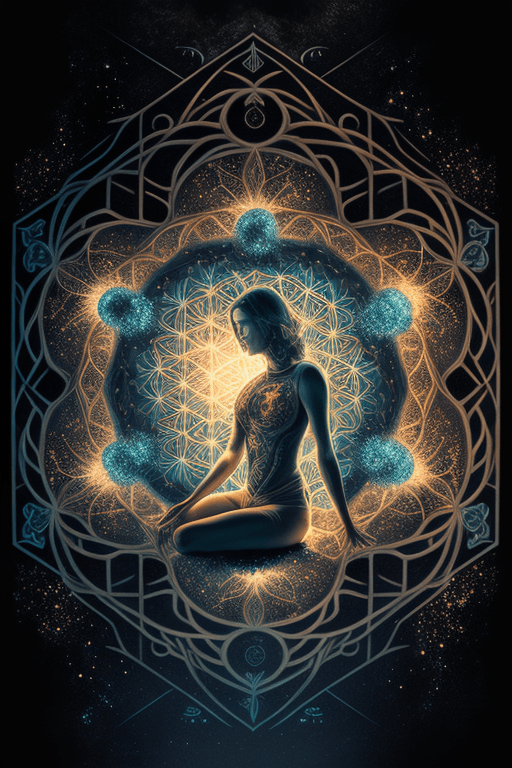
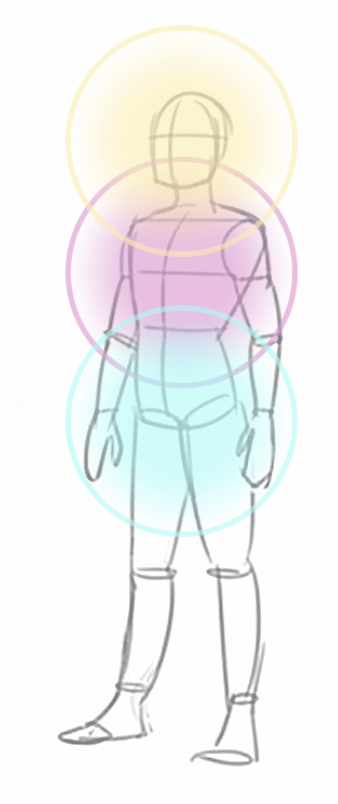
The realization of the self means that an individual becomes as originally as possible what he is called to be by the development of his own qualities.
The individuation designates the passage from a general form to a singular, single and irreducible (indivisible) being.
The question of individuation, what makes us unique, has been raised since antiquity by the greatest names in philosophy. Aristotle and Plato fought each other on the subject. The question of the passage from the species to the singular was settled by Plato in the following way: there is a world of pure and eternal ideas (or forms) of which each person here below is only the imperfect reflection.
CG Jung had a very high conception of individuation: it was not simply the fact of being someone singular - we all are - but the fact of reaching a state of self-fulfillment: becoming a "total man". An adult reaches the stage of individuation when he has finally found his "own way" after a long personal journey.
How can we learn the true meaning of our existence if we do not know our true place, our life mission? "Know thyself" means that man is not who he thinks he is and that he must therefore remember who he really is.
To know oneself is to align with oneself, that Higher Self that represents the highest or deepest vision we have of ourselves. Geonumerology makes it possible to know the ground on which the seed within you can blossom.
